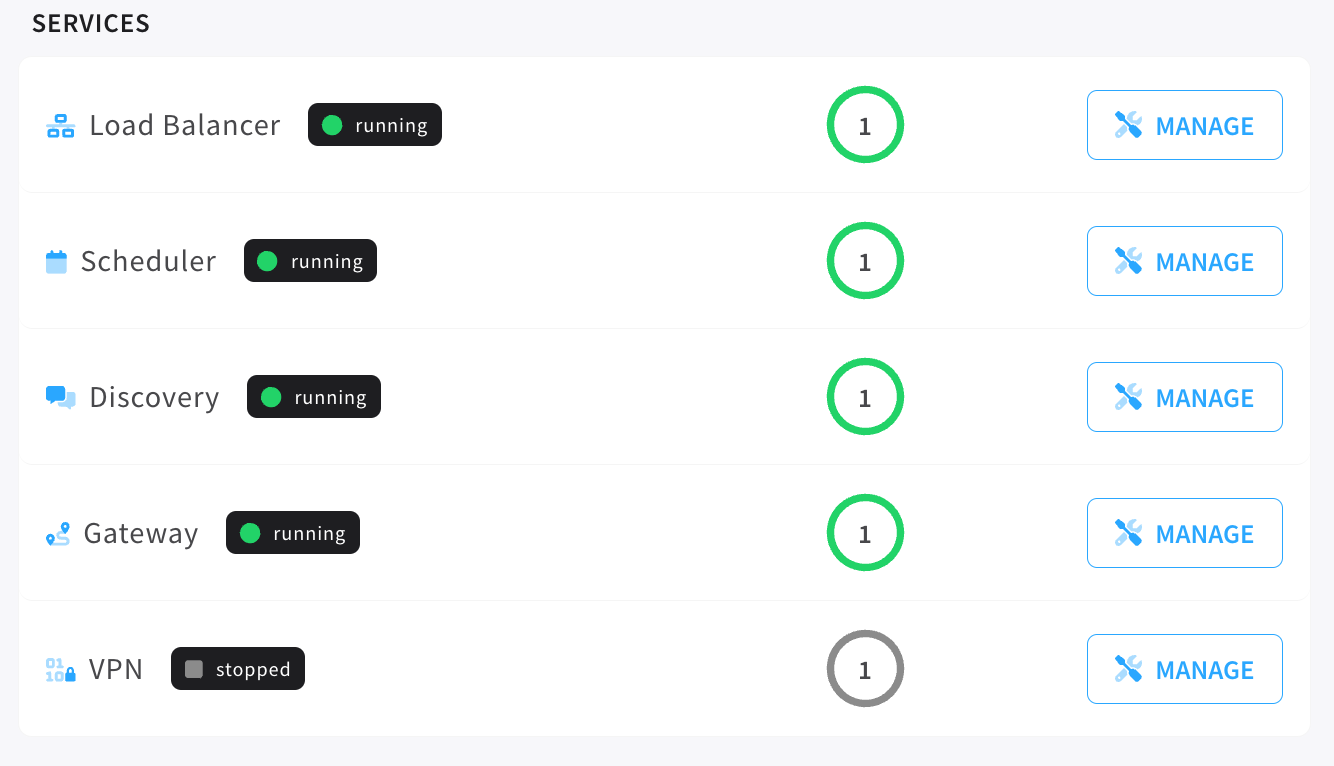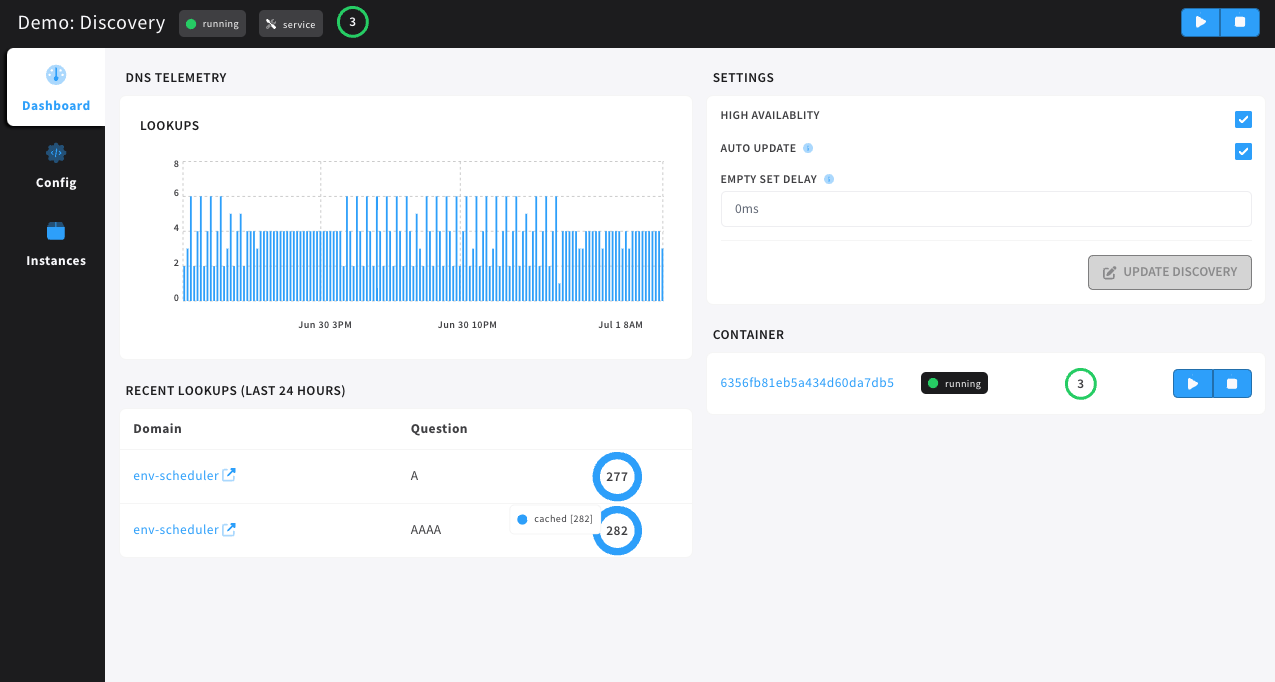Discovery Service
The Discovery service is automatically included in every Cycle environment.
Service discovery is an essential part of containerized deployments. The discovery service is responsible for dynamic hostname to IP translation and DNS lookups. This allows Cycle to provide geograpically-agnostic private networks for each environment.
When a container is created & started, Cycle creates a file inside the container, /etc/resolv.conf, that tells the
container to use the Discovery service for all DNS lookups. Therefore, a lookup to another container with the
hostname frontend can be made by simply using frontend as the domain name. Because of the entry made to the
/etc/resolv.conf file, the initial dns query made by the requesting container will use the discovery service to resolve
the lookup. The discovery service will return all known IP's for the lookup, sorted by proximity to the requesting
instance.
If there is no entry that matches, the nameservers will fall back to Google's DNS (8.8.8.8) for all other queries.
The discovery service caches queries for 5 minutes, giving a performance boost for repeated lookups, since they will be served over the private network.
If your container to container communication feels slow and your application is not preferring IPv6, you may be encountering a situation where your discovery service purposely delays responses for IPv4 addresses by 150 ms.
Managing Discovery
Users can manage environment services by opening the given services, service modal on environment dashboard.

Within the discovery modal there are several settings that can be applied.

High Availability - mark the discovery service for high availability, Cycle will attempt to create 3 instances of discovery spread between the available infrastructure based on geographic distance and provider.
Auto Update - automatically restart and update this service when an update goes out from Cycle.
Empty Set Delay - a setting between 0 and 1 second. Users that would like to purposely delay an empty DNS response so that populated responses would arrive first can use this setting to do so.
Recent Lookups - all DNS lookups made through the discovery service within the last 24 hours.
Forcing Random IP Order From Discovery
When discovery returns a list of IP's after a DNS lookup the list is sorted by proximity to the requesting instance. If
the user would like that list to be randomized prepend the hostname with an underscore - ex: _hostname.
Ingress And Egress
In regards to traffic and the services that facilitate ingress and egress.
When traffic comes in from public internet it will always hit the load balancer. These load balancers have a dedicated IP per load balancer and that information is available on the environment dashboard.
When traffic leaves a container (egress), that traffic is routed "out" through the servers host IP. You can find a given servers host IP by going to the server dashboard.
Config
The DNS config page allows users to set custom domain resolution settings for their discovery service. The domain is any domain you wish to set a custom resolution record for and the IPv4 / IPv6 inputs is the list of addresses to send when discovery resolves that domain.
The Update Host Resolutions button must be used when adding and removing entries to the custom host resolver list.